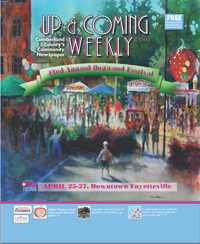 The final days of the North Carolina General Assembly’s “short” session have been more fun than a barrel of monkeys.
The final days of the North Carolina General Assembly’s “short” session have been more fun than a barrel of monkeys.
Charlotte blogger Fannie Flono calls it her “guilty pleasure,” better than the Real Housewives of Atlanta or Orange County. Having never seen those programs, I really have no idea about that, but I did enjoy seeing a powerful senator deliver lumps of coal to House members who refused to do things the Senate’s way. In addition to showing his irritation, the coal was a veiled threat that the legislature might stay in Raleigh until Christmas — a truly scary thought!
My own favorite remark this legislative session came in a letter to the editor in the News and Observer of Raleigh. The writer suggested that just as many working people wear uniforms identifying themselves and their employers, state legislators should be required to wear uniforms identifying the industry they represent in the general assembly!
It is easy to have some fun at the expense of the “honorables,” but it is a lot harder to find out what they are really up to in Raleigh. The problem is not just that legislators might not want us to see the sausage-making process. The real problem is that there are fewer and fewer journalists keeping an eye on them.
The well-respected and non-partisan Pew Research Center released a report earlier this month confirming what many people have already observed — that between 2003 and 2014, the number of full-time statehouse reporters in 50 state legislatures dropped an astounding 35 percent!
I know. I know. Your first reaction might be to jump up and down and shout, “thank heavens!” But think again.
Government at all levels is complex and bureaucratic and, frankly, a lot of it is outright boring. In addition, it can be frustrating when we think our elected officials are making poor decisions and when they make no decisions at all. Top all this with partisan bickering and name calling and it is no wonder we do not rush to our newspapers and televisions to find out what they have done now.
“What,” you exclaim. “There are talking heads all over television 24/7,” and that is true. But they are talking heads mostly in Washington or New York, and they are talking about what is going on in Washington, the nation and around the world. There is so much coverage that members of Congress can barely eat a lunch sandwich at their desks without a camera crew recording the momentous event. But Wolf Blitzer and his journalistic colleagues do not know much, let alone talk about, what the North Carolina General Assembly is up to and what it means for those of us who live here.
Congress is critically important, of course, and its actions have bearing on the lives of all Americans. The reality, though, is that state legislatures have a much more direct impact on the citizens they represent. The 170 people in the North Carolina General Assembly, predominately middle-aged white men, are making decisions about how many teachers will stand in our children’s classrooms next month, about how much money those teachers will be paid for their work and about how much money will be spent on our children’s textbooks and other educational materials. Those 170 people are making decisions about what health services will be available to North Carolina’s children, senior citizens and women of childbearing age. They are making decisions about our UNC system that has proudly educated North Carolinians since 1795, and about how many and what kind of roads we will use in our own communities and to travel from Murphy to Manteo. Theirs are decisions that affect all nearly 10 million of us one way or another every time we walk out our front doors.
Some of us will agree with the choices our General Assembly makes, and some us will be horrified and angry. My point here, though, is that we should at least know about them.
So what has changed?
There are multiple reasons for the decline of legislative coverage. The Great Recession hit traditional news outlets, primarily newspapers but radio and television as well, like a sledgehammer. Then there is the rise of the Internet where news is available when and in what form we want it. Traditional media’s advertising revenues have plummeted, and they continue to scramble to figure out new ways to support their core mission of reporting the news to us. Niche media also cut into traditional media’s pie. There are all manner of online and cable options, many of which have abandoned the concept of objectivity and straight news to promote one point of view or another. Think Fox News preaching to its choir and MSNBC preaching to its choir, and the picture becomes clear.
The upshot?
If we want to know what is going on in Raleigh — and we should, we must try harder, dig deeper and ask more questions of our legislators.
We are living in a time when ignorance is definitely not bliss.

 How to resolve AdBlock issue?
How to resolve AdBlock issue? 









